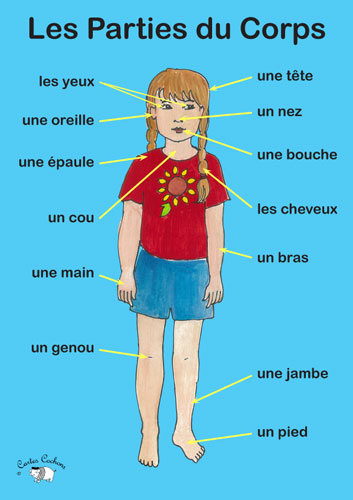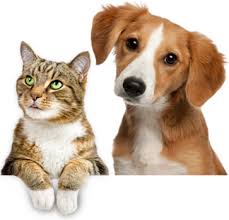This crash course is for people who want to achieve a communicative level of French as quickly as possible. We've focussed on key areas and frequent words. There are around 250 items to learn. There are three tests you can try as well, ranging from level 1 (very simple) to level 3 (functional French). If you want to learn even more grammar, check out our complete French grammar guide. Bonne Chance!
Really Basic Expressions

| English |
French
|
Sound |
| Hello |
Bonjour |
|
| Good-bye |
Au revoir |
|
| Please |
S'il vous plaît |
|
| Thank you |
Merci |
|
| You're welcome |
De rien |
|
| When |
Quand, à quelle heure |
|
| Where is |
Où est |
|
| How much is ...? |
Combien coûte
|
|
| Why? |
Pourquoi? |
|
| How many? |
Combien? |
|
| Because |
Parce que |
|
| In order to |
Afin de |
|
| Nice to meet you |
Enchanté |
|
| Good |
Bon |
|
| Bad |
Mauvais, mal
|
|
| Happy |
Content, heureux
|
|
| How do you say ...? |
Comment dit-on ...?
|
|
| Please speak slowly |
Parlez lentement, s'il vous plaît
|
|
| There is/there are |
Il y a |
|
| The money |
l'argent |
|
| left |
gauche |
|
| right |
droite |
|
Time

| English |
French
|
Sound |
| Today |
Aujourd'hui |
|
| Yesterday |
Hier |
|
| Tomorrow |
Demain |
|
| Now |
Maintenant |
|
| morning |
le matin |
|
| noon, afternoon |
midi, l'après-midi |
|
| evening |
le soir |
|
| Monday |
lundi |
|
| Tuesday |
mardi |
|
| Wednesday |
mercredi |
|
| Thursday |
jeudi |
|
| Friday |
vendredi |
|
| Saturday |
samedi |
|
| Sunday |
dimanche |
|
| The weekend |
la fin de semaine
|
|
| Spring |
le printemps |
|
| Summer |
l'été |
|
| Winter |
l'hiver |
|
| Fall |
l'automne |
|
| What time is it? |
Quelle heure est-il? |
|
| early |
tôt
|
|
| late |
tard, en retard |
|
| always |
toujours |
|
| sometimes |
parfois
|
|
You can find more information about dates and time here.
Bodyparts

| English |
French
|
Sound |
| the head |
la tête
|
|
| the nose |
le nez |
|
| the ears |
l'oreille |
|
| the face |
le visage |
|
| the hair |
les cheveux |
|
| the heart |
le coeur |
|
| the lungs |
les poumons |
|
| the arm |
le bras |
|
| the hand |
la main |
|
| the finger |
le doigt |
|
| the leg |
la jambe |
|
| the knee |
le genou |
|
| the foot |
le pied |
|
| the body |
le corps |
|
| the mouth |
la bouche |
|
| the teeth |
les dents |
|
"My head hurts" = J'ai mal à la tête
Family

| English |
French
|
Sound |
| my brother |
mon frère |
|
| my sister |
ma soeur |
|
| my mother |
ma mère |
|
| my father |
mon père |
|
| my son |
mon fils |
|
| my daughter |
ma fille |
|
| my husband |
mon mari |
|
| my wife |
ma femme |
|
| my uncle |
mon oncle |
|
| my aunt |
ma tante |
|
| my grandfather |
mon grand-père |
|
| my grandmother |
ma grand-mère |
|
| my cousin |
mon cousin |
|
| my last name |
mon nom de famille
|
|
"I have one daughter" = J'ai une fille
Household

| English |
French
|
Sound |
| the door |
la porte |
|
| a room |
une chambre |
|
| the window |
the fenêtre |
|
| a house |
une maison |
|
| a bed |
un lit |
|
| a table |
une table |
|
| a chair |
une chaise |
|
| a cup |
une tasse |
|
| a knife |
un couteau |
|
| a fork |
une fourchette |
|
| a plate |
une assiette |
|
| a glass |
un verre |
|
| a spoon |
une cuillère |
|
| the stairs |
l'escalier |
|
| the floor (ground) |
le sol, le parterre |
|
| a floor (of a building) |
un étage |
|
| the ceiling |
le plafond |
|
| the roof |
le toit |
|
| the shower |
la douche |
|
| the airconditioning |
l'aire climatisé |
|
| a bottle |
une bouteille |
|
| a thing |
une chose |
|
| a box |
une boîte |
|
| the paper |
le papier |
|
| a towel |
une serviette |
|
| a jacket |
un manteau |
|
| the (sun) glasses |
les lunettes (de soleil) |
|
| my clothing |
mes vêtements |
|
| the sofa |
le sofa |
|
"I need a knife" = J'ai besoin d'un couteau
Travel words

| English |
French |
Sound |
| the street |
la rue |
|
| the airport |
l'aéroport |
|
| an airplane |
un avion |
|
| a car |
une auto |
|
| the driver |
le chauffeur |
|
| a taxi |
un taxi |
|
| a bus |
un autobus |
|
| a train |
un train |
|
| a boat |
un bateau |
|
| a credit card |
une carte de crédit
|
|
| the beach |
la plage |
|
| the corner |
le coin |
|
| the sunscreen |
la crème solaire |
|
| a hotel |
un hotel |
|
| I am in a hurry |
Je suis pressé |
|
| leave |
partir |
|
| arrive |
arriver |
|
| meet |
rencontrer |
|
| travel |
voyager |
|
| expensive |
cher |
|
| the grocery store |
l'épicerie |
|
| Can you help me? |
Vous pouvez m'aider? |
|
| Do you speak English? |
Parlez-vous anglais? |
|
| An emergency |
une urgence |
|
| The hospital |
l'hôpital |
|
| What does this word mean? |
Qu'est-ce que ce mot veut dire? |
|
| parking lot |
un stationnement |
|
"Can you tell me when the train leaves for Paris?" = Pouvez-vous me dire quand le train part pour Paris?
Food

| English |
French |
Sound |
| the cheese |
le fromage |
|
| the wine |
le vin |
|
| the bread |
le pain |
|
| the rice |
le riz |
|
| the beans |
les haricots |
|
| the nuts |
les noix |
|
| the salad |
une salade |
|
| the waiter |
le serveur |
|
| the bill |
l'addition, la note |
|
| the chicken |
le poulet |
|
| the shrimp |
les crevettes |
|
| the fish |
le poisson |
|
| the beef |
le boeuf |
|
| the pork |
le porc |
|
| the egg |
l'oeuf |
|
| the salt |
le sel |
|
| the milk |
le lait |
|
| a lemon |
un limon |
|
| the garlic |
l'ail |
|
| the oil |
l'huile |
|
| a tomato |
une tomate |
|
| breakfast |
le petit déjeuner
|
|
| lunch |
le déjeuner
|
|
| supper |
le dîner |
|
| the food |
la nourriture |
|
| I am hungry |
j'ai faim |
|
| I am thirsty |
j'ai soif
|
|
Animals

| English |
French |
Sound |
| the dog |
le chien |
|
| the cat |
le chat |
|
| the bird |
l'oiseau |
|
| a spider |
une araignée |
|
| the horse |
le cheval |
|
| the cow |
la vache |
|
| the mouse |
la souris |
|
| the fish |
le poisson |
|
| the pig |
le cochon |
|
| the octupus |
la pieuvre |
|
Noun endings
French nouns are preceded by either a masculine (un) or a feminine (une) determiner. Here's all you really need to know:
| |
masculine "a"/"some" |
masculine "the" |
feminine "some" |
feminine "the" |
| singular |
un garçon ("a boy")
|
le garçon ("the boy") |
une fille ("a girl") |
la fille ("the girl") |
| plural |
des garçons ("some boys") |
les garçons ("the boys") |
des filles ("some girls") |
les filles ("the girls") |
Things are more complicated than portrayed here, but this simple system should suffice.
Pronouns
Object pronous usually come before the verb, e.g.:
"The girl watches us" = La fille nous regarde
Here's a general table of pronouns:
| Subject |
Direct object |
Indirect object |
| Singular |
Plural |
Singular |
Plural |
Singular |
Plural |
| je (I) |
nous (we) |
me (me) |
nous (us) |
me (to me) |
nous (to us) |
| tu (you) |
vous (you) |
te (you) |
vous (you) |
te (to you) |
vous (to you) |
| il (he) |
ils/elles (they) |
le (him/it) |
les (them) |
lui (to him/her) |
leur (to them) |
| elle (she) |
|
la (her/it) |
les (them) |
|
leur (to them) |
- To mean "it", "this" or "that", simply use "cela"
- "me and you" = "moi et toi"
An extensive description of French pronouns is available here.
Verbs
Here's a list of common verbs in the infinitive form:
| English |
French |
Sound |
Notes/Examples |
| have |
avoir |
|
j'ai beaucoup d'amis ("I have many friends") |
| be |
être |
|
use avoir with faim, soif, peur and age (e.g.: j'ai vingt ans = "I am 20") |
| do/make |
faire |
|
|
| eat |
manger |
|
|
| drink |
boire |
|
|
| go |
aller |
|
Allons-y! ("Let's go!") |
| come |
venir |
|
|
| take |
prendre |
|
|
| want |
vouloir |
|
Je veux partir ("I want to leave"), Je voudrais partir ("I would like to leave") |
| need |
avoir besoin |
|
J'ai besoin de ton aide ("I need your help") |
| can |
pouvoir |
|
"I can speak French" = Je peux parler français |
| like |
aimer |
|
J'aime cet appartement
|
| talk |
parler |
|
|
| say |
dire |
|
|
| ask |
demander |
|
|
| understand |
comprendre |
|
"I don't understand" = Je ne comprends pas
|
| know |
savoir/connaître |
|
savoir = know a fact, know that; connaître = be familiar with |
| help |
aider |
|
|
| buy |
acheter |
|
|
| sell |
vendre |
|
|
| spend |
dépenser |
|
|
| wash |
laver |
|
|
| open |
ouvrir |
|
|
| close |
fermer |
|
|
| arrive |
arriver |
|
|
| wear |
porter |
|
|
| read |
lire |
|
I am reading the newspaper = Je lis le journal
|
| learn |
apprendre |
|
|
| stay |
rester |
|
|
| die |
mourir |
|
Mon grand-pere est mort |
| live |
habiter, vivre |
|
|
| try |
essayer |
|
|
| be born |
être né |
|
|
| look for/search |
chercher |
|
|
| lose |
perdre |
|
|
| find |
trouver |
|
This can often be used for locations, e.g.: Where is the bank? = Où se trouve la banque? |
| put |
mettre |
|
"I put it on the table" = Je l'ai mis sur la table
|
| rent |
louer |
|
|
| come back/return |
revenir |
|
|
| order |
commander |
|
|
| pay |
payer |
|
|
- To say "Let's", use the -ons ("we") form, e.g.: "Let's go watch a movie" = Allons voir un film
- For future action, use aller + verb e.g.: "I'm going to leave tomorrow = Je vais partir demain
- For the past, start with au passé ... ("in the past") or hier ("yesterday") then use an infinitive or a simple present. That's not grammatical, but will be functional.
- For negatives, put pas after the verb
You can find a full discussion of French verbs in your grammar guide.
Adjectives
French adjectives agree with nouns for number and gender, e.g.: une chemise blanche. Don't worry about this for simple communication though. Note that they usually follow the noun, though many common ones do come first (e.g.: un petit problème). Here are some adjectives you'll need:
| English |
French |
| good |
bon |
| bad |
mauvais |
| nice |
gentil |
| early |
tôt |
| late |
tard |
| short |
court |
| long |
long |
| ready |
prêt |
| big |
grand |
| small |
petit |
| fast |
rapide |
| slow |
lent |
| wet |
mouillé |
| dry |
sec |
| smart |
intelligent |
| stupid |
stupide |
| true |
vrai |
| drunk |
soûl |
| I am right |
j'ai raison
|
| I am wrong |
j'ai tort
|
Adverbs, Quantities
| English |
French |
Notes/Examples |
| How |
Comment |
|
| How much? |
Combien |
|
| Enough |
Assez |
|
| Too much |
Trop |
|
| Not much |
pas beaucoup |
|
| Few |
peu |
|
| A lot |
beaucoup |
|
| More |
plus |
|
| Less |
moins |
|
| Very |
très |
|
| Already |
déjà |
|
| Only |
seulement |
|
| Something |
quelque chose |
|
| Nothing |
rien |
|
| Everything |
tout |
|
| Also |
aussi |
|
| Again |
encore |
|
Possession
| English |
French |
Notes/Example |
| my |
mon/ma/mes |
mon frère, ma soeur
|
| your |
votre |
|
| his |
son/sa |
|
| her |
son/sa |
|
| our |
notre |
|
| their |
leur |
|
| mine |
le mien |
c'est le mien = "that is mine" |
Prepositions
| English |
French |
Notes/Examples |
| in |
dans, en |
use en with countries |
| on |
sur |
|
| with |
avec |
|
| without |
sans |
|
| to |
a |
|
| from |
de |
|
| for |
pour |
|
| during |
durant, pendant |
|
| before |
avant |
|
| after |
après |
|
| behind |
derrière |
|
| in front of |
devant |
|
Numbers
| Numbers from 1 - 50 |
| un (1) |
onze (11) |
vingt et un (21) |
trente et un (31) |
quarante et un (41) |
| deux (2) |
douze (12) |
vingt-deux (22) |
trente-deux (32) |
quarante-deux (42) |
| trois (3) |
treize (13) |
vingt-trois (23) |
trente-trois (33) |
quarante-trois (43) |
| quatre (4) |
quatorze (14) |
vingt-quatre (24) |
trente-quatre (34) |
quarante-quatre (44) |
| cinq (5) |
quinze (15) |
vingt-cinq (25) |
trente-cinq (35) |
quarante-cinq (45) |
| six (6) |
seize (16) |
vingt-six (26) |
trente-six (36) |
quarante-six (46) |
| sept (7) |
dix-sept (17) |
vingt-sept (27) |
trente-sept (37) |
quarante-sept (47) |
| huit (8) |
dix-huit (18) |
vingt-huit (28) |
trente-huit (38) |
quarante-huit (48) |
| neuf (9) |
dix-neuf (19) |
vingt-neuf (29) |
trente-neuf (39) |
quarante-neuf (49) |
| dix (10) |
vingt (20) |
trente (30) |
quarante (40) |
cinquante (50) |
- 50 = cinquante
- 100 = cent
- 1000 = mille
- first = premier
- next = prochain
- last = dernier
Pronunciation
Many written letters are not actually pronounced in French (like English). Here are a few things to keep in mind:
- French syllables are very even and slowly delivered
- most final letters are not pronounced, e.g.: tout = /tu/
- French "R" is like a weak "g"
- the letter "h" is always silent ("hiver" = /iver/)
- final consonants are usually silent ("tôt" = "toe")
- A complete overview of French pronunciation can be found in our Phonetics Guide.